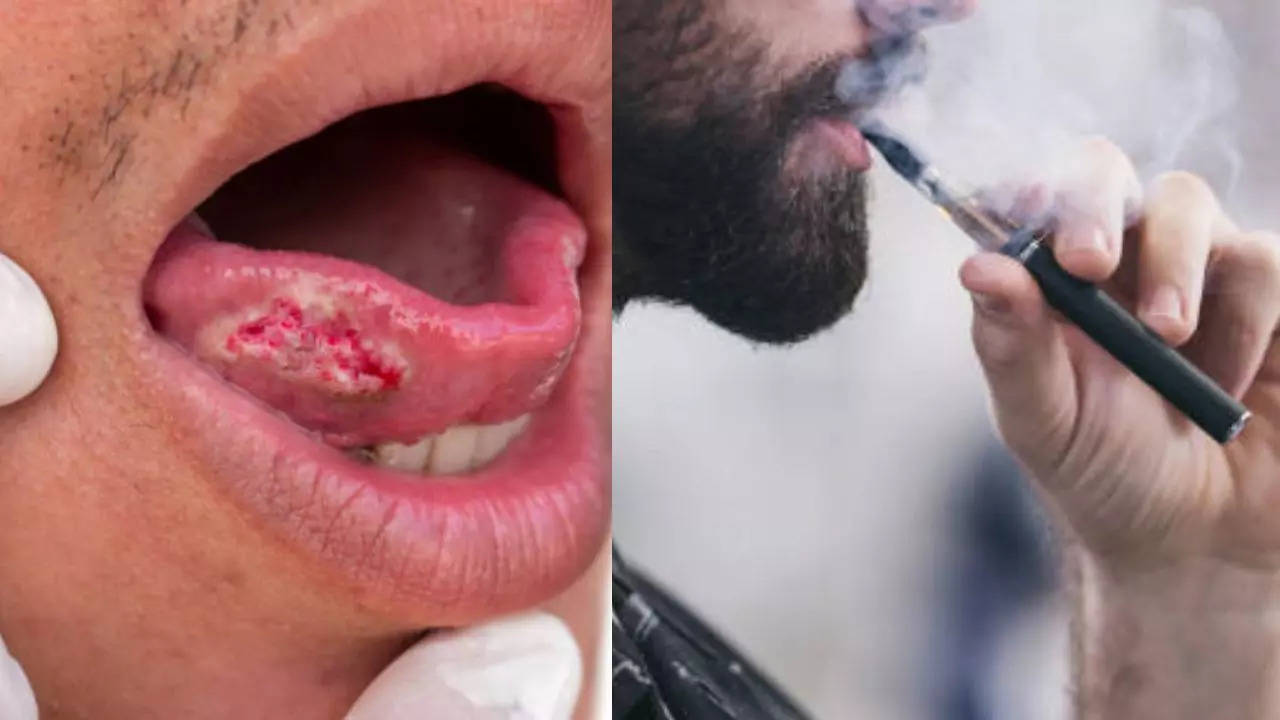
A worrying spike in the number of mouth cancer cases across the world has made doctors wonder what the reasons behind youngsters grappling with this dreadful disease are. Experts say around 377,713 people are being diagnosed with the disease each year, marking a 133 per cent rise in cases over the last 20 years. Also known as oral cancer, mouth cancer refers to cancer that develops in any of the parts that make up the mouth or the oral cavity, which include your: Lips Gums Tongue The inner lining of the cheeks Roof of the mouth The floor of the mouth It involves people having mouth ulcers that do not heal, along with red or white patches in the mouth and unusual lumps or swellings in the mouth, head, or neck.
Experts believe smoking and excessive alcohol consumption remain the most significant risk factors – along with a growing number of cases linked to the human papillomavirus. However, despite the alarming rise, many people are not aware of the main causes and factors that put them at risk of this dangerous disease, making them less likely to take steps to reduce their chance of getting it. Habits that increase the chances of developing mouth cancer And so, a few expert-flagged daily habits that could make you more likely to develop mouth cancer include: Smoking According to the American Cancer Association, if someone smokes, their risk of oral cancer becomes around 5-10 times greater than those who don’t.
The risk, doctors say, gets multiplied if they also drink alcohol. Oral cancer is twice or thrice more common in men than women. Experts suggest getting regular dental check-ups done if you smoke, as anything sinister can be spotted early if it arises.
Chewing tobacco The use of smokeless tobacco has been linked to the risk of oral cancer. Smokeless tobacco contains tobacco-specific nitrosamines, polonium, formaldehyde, cadmium, lead, and benzo[a]pyrene, which are carcinogenic agents. Alcohol consumption Drinking too much alcohol affects your health in many ways – including an increased risk of mouth cancer.
Studies say excessive drinking is linked to 34 per cent of mouth cancers, making it one of the main causes. Unsafe sex Doctors say practicing unsafe sex increases the risk of this disease because it can spread the human papillomavirus or HPV – a major cause of oral cancer. It usually spreads through skin-to-skin contact during sex, as well as oral sex and kissing.
Statistics say the number of mouth cancer cases linked to HPV is on the rise, with data showing that up to 73 per cent of cancers in areas like the back of the tongue and tonsils are HPV-positive. But 8 per cent of people know HPV can cause mouth cancer. Unhealthy diet Around one-third of mouth cancers are linked to an unhealthy diet and a lack of essential nutrients your body needs to become healthy.
It is recommended that you eat a healthy, balanced diet including lots of fruit and vegetables each day. Doctors recommend a balanced diet rich in fruits, vegetables, and essential nutrients that can substantially reduce the risk of developing mouth cancer. Research has shown that consuming fruits regularly can lower your risk by 48 per cent, while taking vitamin C supplements can reduce the risk by 24 per cent.
Early signs of mouth cancer you must not ignore A few common signs and symptoms of oral cancer include: Sores on your lip or inside your mouth that bleed easily and do not heal within two weeksRough spots or crusty areas on your lips, gums, or inside of your mouthAreas in your mouth that bleed for no obvious reasonNumbness, pain, or tenderness on your face and neck or in your mouth that occur without apparent causeDifficulty chewing or swallowing, speaking or moving your jaw or tongueUnintentional weight loss Earache Chronic bad breath Get Latest News Live on Times Now along with Breaking News and Top Headlines from Health and around the world..














